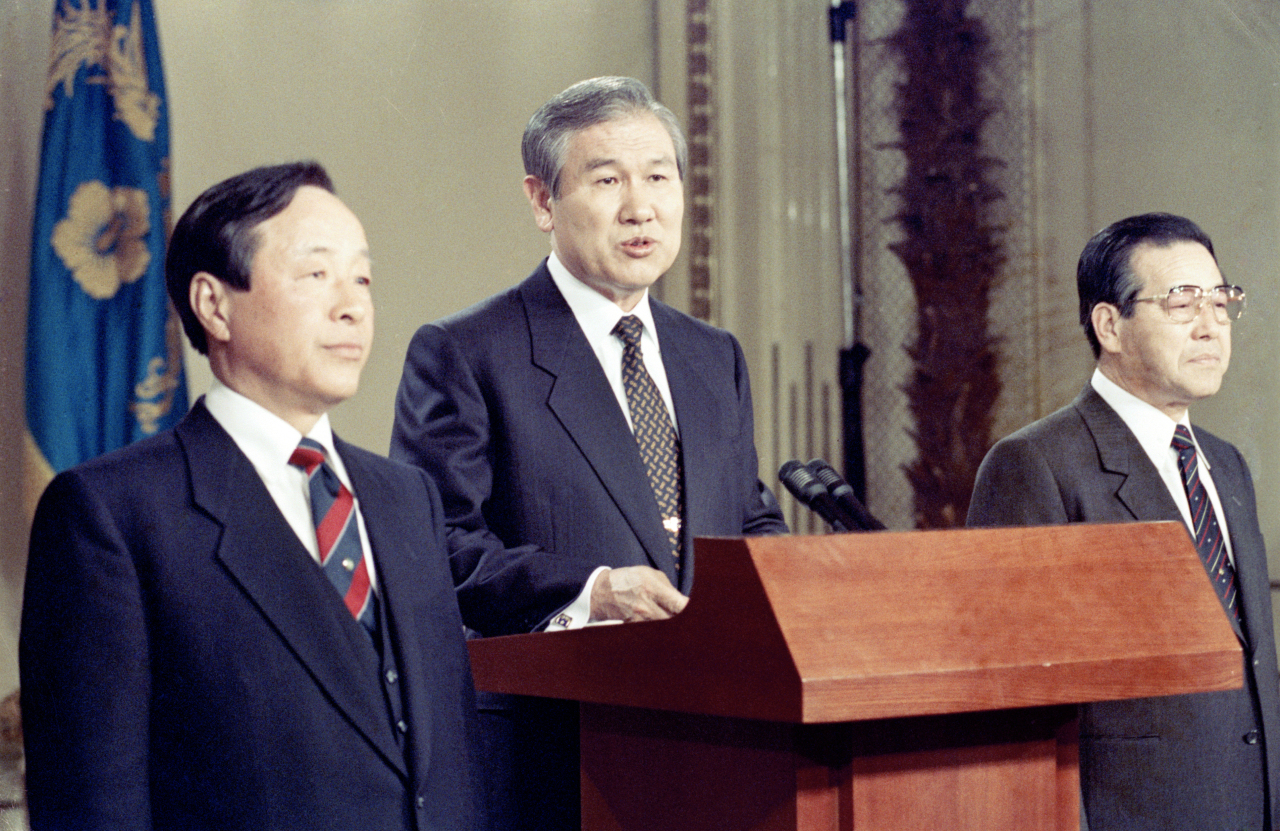 |
Former President Roh Tae-woo (Yonhap) |
The government will hold a Cabinet meeting Wednesday to discuss whether to hold a state funeral for late former President Roh Tae-woo, the country's last general-turned-president accused of deep involvement in a coup and the bloody crackdown on a pro-democracy uprising.
The Cabinet meeting is aimed at holding discussions on a state funeral proposal but tabling the proposal at a Cabinet meeting itself raised views that the government was close to deciding to hold a state funeral for him.
President Moon Jae-in has not issued any message yet since Roh died Tuesday at age 88, suggesting that soul-searching is under way to determine the right balance between paying respect to a late predecessor and public sentiment critical of his dark legacy.
Under a law, a state funeral will be held if a former, an incumbent or a president-elect dies. But the law does not specify whether a state funeral will be possible if they commit a grave crime, like a military coup.
Presidential chief of staff You Young-min told lawmakers Tuesday that a state funeral for Roh is "possible, but it needs a process."
Roh rose to prominence after helping former President Chun Doo-hwan seize power through the 1979 military coup in the wake of a political vacuum created by the death of former authoritarian President Park Chung-hee.
Chun's junta was accused of ruthlessly cracking on the 1980 uprising in Gwangju, leaving more than 200 dead and 1,800 others wounded, according to conservative official data.
Some lawmakers of the ruling Democratic Party (DP) voiced opposition to a state funeral for Roh, citing his role in the military coup.
"If the Republic of Korea holds a state funeral for a main culprit of mutiny, it will be self-denial of the Republic of Korea," said Oh Gi-hyoung, a DP lawmaker, in a Facebook post.
Attention is also focusing on where Roh's remains will be buried.
The family of Roh said they have been in consultations with the government about a funeral process.
On Tuesday, the family made public his last message asking for forgiveness for his "faults" -- an apparent reference to his much-criticized role in the military coup and the bloody crackdown on a pro-democracy uprising in Gwangju.
"I made my best efforts but now sincerely ask for forgiveness for my shortcomings and faults," Roh was quoted by his family as saying. "I feel very grateful and honored to have humbly accepted my destiny and served the great Republic of Korea and the people." (Yonhap)







![[Robert Fouser] Accepting migrants in South Korea](http://res.heraldm.com/phpwas/restmb_idxmake.php?idx=644&simg=/content/image/2024/10/31/20241031050896_0.jpg)
